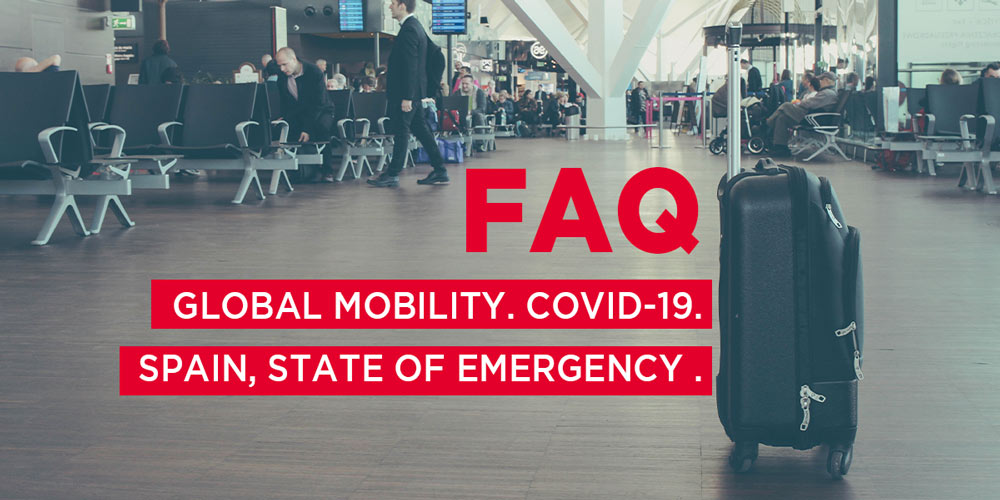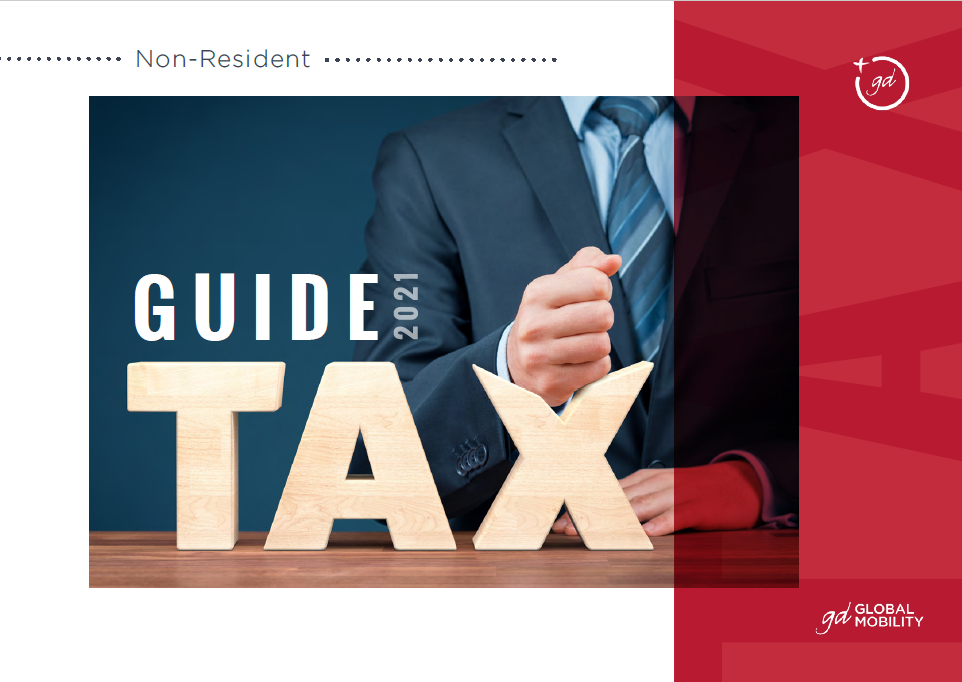
All frequently asked questions to our team about coronavirus (COVID19), the spanish state of emergency and global mobility.
Who can enter Spain during the Coronavirus (COVID19)?
At this time, only Spanish nationals and legal residents can enter Spain. Additionally, EU citizens and residents (including those with a Type D residence visa) may have a layover in Spain in order to arrive to their country of residence. Any health care workers and diplomats are also authorized to enter Spain.
We have staff who need to transit through Spain, can we do this?
If flights are available, it is still possible to have a layover in Spain. However, it is highly recommended to change flight plans to not transit through Spain due to the cancellation of many flights as well as many countries not accepting inbound flights from Spain.
What do we do now as we have a staff member who went overseas and they were living and working in Spain and hold a Valid visa and we need them back ASAP?
The employee may return to Spain with their valid visa or residence card.
We have employees in Spain whose visa is due to expire shortly and they cannot/do not wish to depart Spain. What do we do?
First of all, they should follow all government protocols regarding self-isolation and social distancing to stay healthy.
The Spanish State of Emergency is currently due to end on April 26, but is likely to be extended. During this period, the administrative deadlines are suspended and the offices are closed to the public; that said, administrative files continue to be reviewed.
In-person procedures (residence card applications and pick-ups, return authorizations, initial, in-person residence permit applications) have been cancelled and will be rescheduled after the State of Emergency.
Work and residence permit renewal applications may be submitted electronically, and are being processed by the Administration.
For those on a business trip, if it is not possible to return home during the validity of the visa, the State of Emergency also covers these situations so that your employee will not be considered in an irregular situation in Spain. Regardless, we recommend in these cases to present a letter to the administration electronically, informing them of the situation. When the situation is resolved and the employee can return home, they can do so with proof that they notified the immigration authorities to avoid any setbacks.
Are there exemptions from the ban on traveling to Spain during the Coronavirus?
No, just nationals and legal residents may travel to Spain.
Can our business still apply for a work visa /extension for a person who is in Spain?
Absolutely. All applications for work and residence permits, initial and renewal procedures can be submitted electronically and are being processed by the Administration.
Can our business still apply for a work visa for a person who is NOT in Spain during Coronavirus (COVID19)?
The work permit may still be presented as indicated above.
In those cases when a work visa application is needed once the work permit has been approved in Spain, the process might be suspended as some of the Spanish Consular offices are closed during the State of Emergency.
Can we reduce the hours or suspend the employment contract of our workers who are already on a valid work visa?
It is possible to reduce the hours/suspend the employment contract of foreign employees, following the labor law restrictions.
In these situations, it is necessary to notify any changes to the Immigration Office.
Can the visa holder take Leave Without Pay (LWOP)?
It is perfectly possible. However, in some cases depending on the type of work permit, an LWOP might imply the expiration of the work permit validity.
We might need to make our Valid work visa holders redundant so what do we do?
If the impact is short-term during the state of emergency in response to the coronavirus pandemic, then it is necessary to follow Spanish labor law for fewer work hours or work contract suspension and notify the Immigration Office.
If for a longer-term and the employee returns home indefinitely, it is possible to wait until after the State of Emergency to review the situation and then notify the Immigration Office at that time (within 30 days of the finalization of the state of emergency in response to the coronavirus pandemic).
When will the travel ban be lifted?
This is difficult to say as each day there are new changes. At the moment, the state of emergency in response to the coronavirus pandemic is due to end on April 26, but it is likely to be extended.





